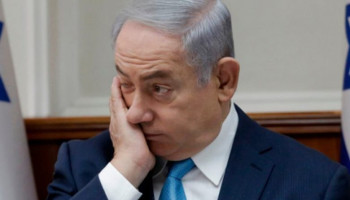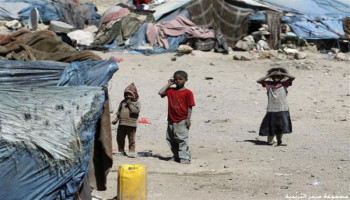Leaked Saudi secret documents have revealed that the kingdom has been pursuing a policy to partition Yemen through supporting various tribal leaders.
According to the Qatari Arabic-language al-Jazeera television news network, which leaked the documents, they indicate that several plots adopted by the Riyadh regime have plunged Yemen into its current situation.
Some of the 162 pages of documents disclosed that the Saudi regime has been constantly trying to consolidate the authority of tribes by providing material support to some sheikhs in exchange for assurances that they would advance Riyadh’s agendas and policies.
The amount of support for the tribal leaders is definite, given the importance of each tribe and the extent of its sheikhs' commitment to implement the directives and instructions received away from the sovereignty and authority of the Yemeni state.
The documents included a letter classified as “top secret” and dated February 14, 2010, in which then King Abdullah bin Abdulaziz instructed Saudi officials to provide 50 million riyals (about $13 million) to support and arm Yemeni tribes loyal to the kingdom and living in areas adjacent to the Saudi border.
The documents revealed that Saudi Arabia was dealing with the separation of southern Yemen as one of the main options for resolving what it describes as the “southern issue.”
A document dated from September 2012 showed that some southern entities received significant Saudi support after 2011.
Meanwhile, the kingdom had employed spies to report on meetings between southern leaders, which were held under international sponsorship.
The kingdom’s initiative towards southern powers took place without the knowledge of the Yemeni government, according to the document.
Other documents showed Saudi Arabia hindered German and Qatari reconstruction efforts in the northern Yemeni city of Sa’ada, after a ceasefire had ended six years of conflicts between Houthi fighters and forces loyal to then president, Ali Abdullah Saleh, in 2010.
In March 2015, Saudi Arabia launched a devastating war on Yemen with the declared aim of putting Abd Rabbuh Mansur Hadi back to power, and eliminating the popular Houthi Ansarullah movement.
Riyadh has not been alone in the bloody campaign, enjoying arms supplies from its Western backers and support from its regional allies, chief among them, the United Arab Emirates.
Over 100,000 people have been killed in the Saudi war on Yemen, according to some semi-official figures.
The Saudi regime has failed to fulfill the objective of its deadly campaign.
The war has also destroyed and shut down Yemen’s infrastructure. The Yemeni population has been subjected to large-scale hunger and diseases aggravated by the naval blockade imposed on the country by Saudi Arabia and its allies.
Source: Press TV
Secret Documents: Saudi Arabia Seeking to Partition Yemen since 2011
الأحد, 09 أغسطس 2020







